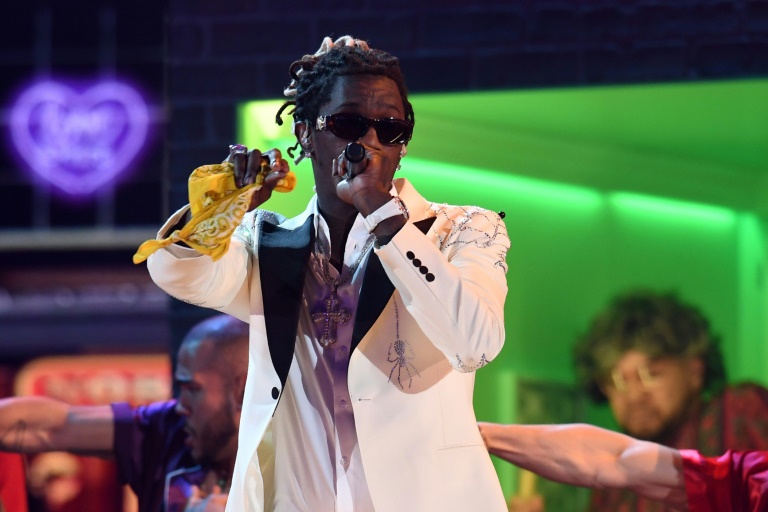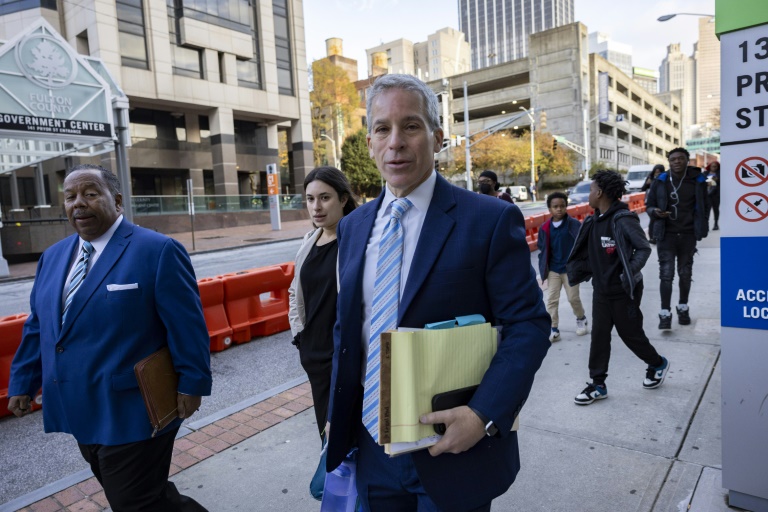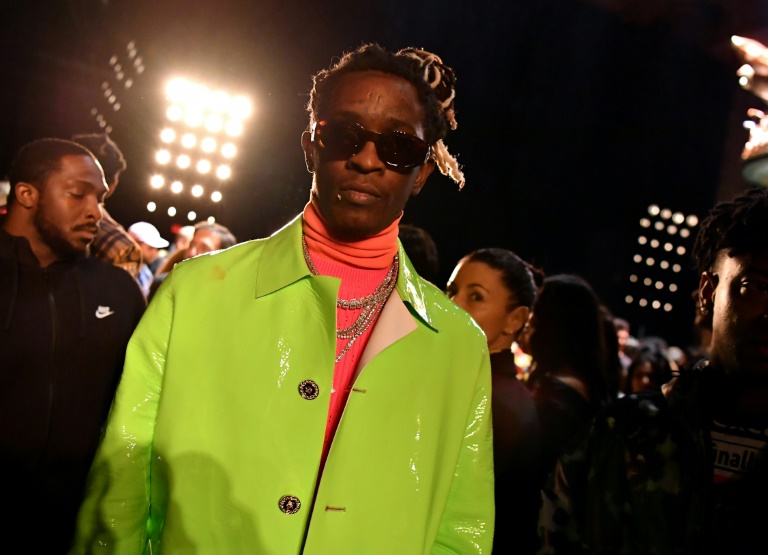
Rapper Young Thug performs during the 61st Annual Grammy Awards on February 10, 2019, in Los Angeles
Robyn Beck
Young Thug’s lyrics describe the violence-plagued and poverty-stricken environment the rapper grew up in but aren’t evidence of criminal activity, his lawyer Brian Steel said in court Tuesday.
Attorney Brian Steel detailed the artist’s rags-to-riches trajectory as part of the defense’s opening statements in a sprawling racketeering trial targeting the rapper and others, which began in earnest this week after months of painstaking jury selection, courtroom dramas and myriad delays.
The US state of Georgia accuses the Grammy-winning rapper of leading a street gang fronted by his record label, YSL, and is prepared to controversially present rap verses as proof of real-life crimes.
The defense insists no such crime ring exists, and that presenting lyrics in court as confessions amounts to a violation of free speech and artistic license.
In a lengthy opening, Steel described Young Thug’s upbringing in since-closed housing projects in Atlanta, where his family could barely afford food or utilities and lived in a community riven by violence fueled by severe poverty.

Brian Steel, attorney for rapper Young Thug, arrives at the Fulton County Courthouse
Christian Monterrosa
His raps detail murders, shootings and drug use because “this is the environment that he grew up, these are the people he knew, these are stories he knew,” Steel said.
The attorney said the artist aspired to fame to “break the generational hopelessness” experienced by his family.
The lawyer also said the rapper, born Jeffrey Williams, developed “deep embedded beliefs about our criminal justice system” — namely that it “was not just — at least not for the people that he saw.”
Steel described one scene where the rapper’s then-20-year-old brother was shot near their building, and when police arrived, they handcuffed his overwrought mother and put a sheet over his brother, even though he was still breathing.
Once he gained celebrity for his art, Steel said Young Thug became a mythical figure in his community, and engaged in rivalries online not as part of a gang but to “generate interest” in his work, as is common on the industry.
“You will learn that this is part of being involved in hip hop or rap,” Steel said, comparing it to sports. “Battles going across social media generates interest much like the NFL has rivalries.”

Georgia prosecutors allege that chart-topper Young Thug, seen here at a New York fashion show in December 2018, leads a criminal street gang
Angela Weiss
Young Thug, 32, was one of 28 alleged street gang members originally swept up in a May 2022 racketeering indictment.
Six are being tried under the original indictment and deny all accusations. Many of the other defendants took plea deals or will be tried separately.
The accusations included myriad underlying offenses that prosecutors say support an overarching conspiracy charge, including murder, assault, carjacking, drug dealing and theft. The prosecution must prove that these predicate acts were carried out by a group operating as an “enterprise.”
In a motions hearing earlier this month, Glanville gave prosecutors the green light to present 17 sets of lyrics as evidence, provided they could link their content to real-world crimes.
For years using lyrics as evidence has triggered criticism from free speech advocates, legislators and many figures in the music industry, who say it unfairly singles out rap as inherently violent and punishes people of color.
But prosecutors insist the lyrics presented in the YSL case will correspond to real-world illegal activity.
During opening statements Monday, Fulton County’s chief deputy district attorney, Adriane Love, referred to Young Thug by another nickname, King Slime, and said that YSL “moved like a pack, with the defendant Jeffrey Williams as its head.”
The trial is expected to last well into 2024.
The prosecution has filed a list of hundreds of potential witnesses. The defense’s list includes family members and fellow rappers T.I. and Killer Mike.
The case is taking place in the same Fulton County courthouse where former president Donald Trump is himself embroiled in a racketeering case over alleged attempts to overturn the 2020 election.
This post was originally published on this site be sure to check out more of their content.






